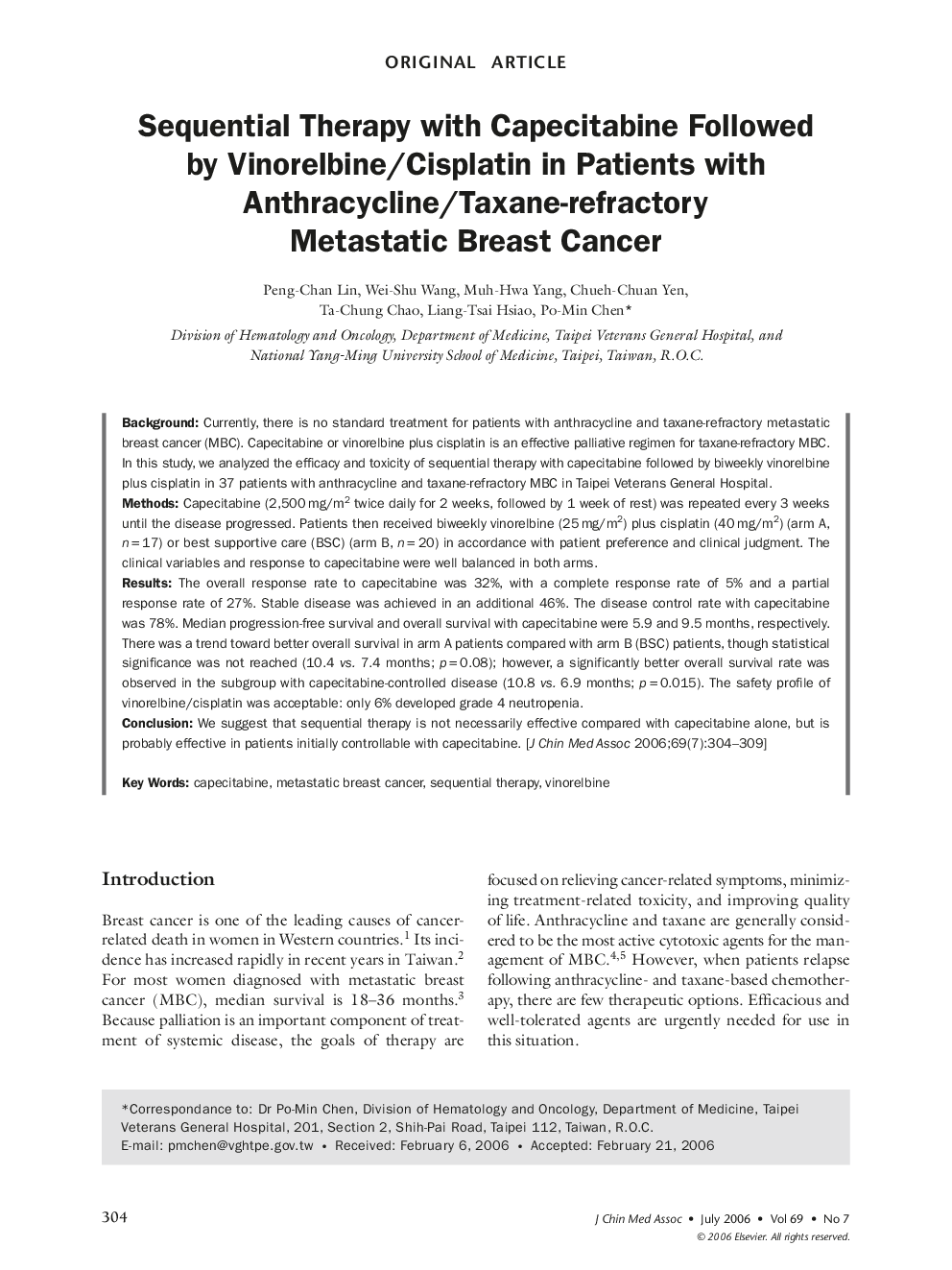| Article ID | Journal | Published Year | Pages | File Type |
|---|---|---|---|---|
| 3477585 | Journal of the Chinese Medical Association | 2006 | 6 Pages |
BackgroundCurrently, there is no standard treatment for patients with anthracycline and taxane-refractory metastatic breast cancer (MBC). Capecitabine or vinorelbine plus cisplatin is an effective palliative regimen for taxane-refractory MBC. In this study, we analyzed the efficacy and toxicity of sequential therapy with capecitabine followed by biweekly vinorelbine plus cisplatin in 37 patients with anthracycline and taxane-refractory MBC in Taipei Veterans General Hospital.MethodsCapecitabine (2,500 mg/m2 twice daily for 2 weeks, followed by 1 week of rest) was repeated every 3 weeks until the disease progressed. Patients then received biweekly vinorelbine (25 mg/m2) plus cisplatin (40 mg/m2) (arm A, n = 17) or best supportive care (BSC) (arm B, n = 20) in accordance with patient preference and clinical judgment. The clinical variables and response to capecitabine were well balanced in both arms.ResultsThe overall response rate to capecitabine was 32%, with a complete response rate of 5% and a partial response rate of 27%. Stable disease was achieved in an additional 46%. The disease control rate with capecitabine was 78%. Median progression-free survival and overall survival with capecitabine were 5.9 and 9.5 months, respectively. There was a trend toward better overall survival in arm A patients compared with arm B (BSC) patients, though statistical significance was not reached (10.4 vs. 7.4 months; p = 0.08); however, a significantly better overall survival rate was observed in the subgroup with capecitabine-controlled disease (10.8 vs. 6.9 months; p = 0.015). The safety profile of vinorelbine/cisplatin was acceptable: only 6% developed grade 4 neutropenia.ConclusionWe suggest that sequential therapy is not necessarily effective compared with capecitabine alone, but is probably effective in patients initially controllable with capecitabine.
